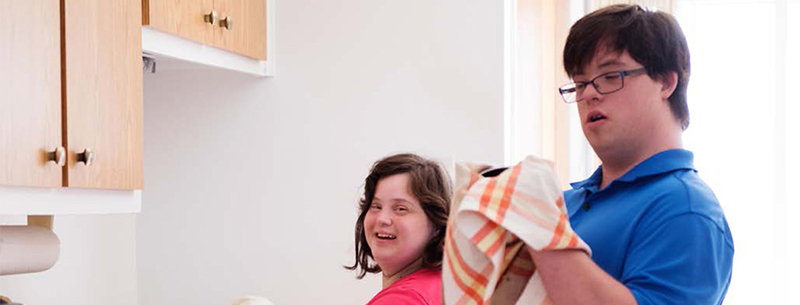Future planning: Preparing for independence.
What independence means is different for each person. In any case, it is a journey that can involve quite a few steps along the way.
In this extract from the Leap in! ebook Future planning: A guide for parents and carers, we cover how parents and carers can support people with a disability to become more independent.
For parents, families and carers, there can often be mixed feelings about the shift to greater independence. It is natural to feel concern for the person’s welfare and whether they will be able to manage a new situation.
Having to “let go” can also evoke a wide range of emotions – from fear and anxiety to frustration and grief. Changes in the family unit can affect everyone, including siblings. In cases where a person with high care needs is moving out of the family home, it is common for families and carers to experience a degree of guilt that they are no longer primary caregivers as well as a deep sense of loss.
10 tips for supporting independence.
1. Start early and build from there
2. Begin with easy, day-to-day decisions and activities
3. Encourage interactions with others, especially friends or community members outside the family unit
4. Let them choose their friends and who they spend time with
5. Work on developing a healthy lifestyle including eating well and exercising where possible
6. Take the time to talk about sexual health including what sexual abuse looks like and how to speak up if something is not right
7. Set goals and use the NDIS Capacity Building budget category to build skills
8. Develop a core network of health professionals and providers that can support you both on the journey
9. Talk about what the future might look like and work together to address issues, concerns or questions along the way
10. Be informed and research supports and funding available so you can provide guidance as necessary.
Trialling different options.
On the journey to independence, it can help to have a transition period which involves trialling several different options. Depending on the goal, this could take place over a number of years.
Example: Goal – Independent living.
If the person’s goal is to live independently, you might like to trial longer periods of respite where they are away from their usual place of residence. It may also be worthwhile to find out their preferred living arrangements via a trial.
- Are they happiest living with another person with a disability?
- Do they prefer to live with someone their own age or gender?
For non-verbal adults, these trials can help assure you that the final choices align with the person’s preferences.
What is capacity building and how can the NDIS help?
Capacity building and independence are closely linked. The Capacity Building budget category is all about developing and improving the skills needed for living more independently.
This may include support to:
- Find and maintain an appropriate place to live
- Improve skills to participate in community, social and recreational activities
- Access training or therapy to increase skills such as learning how to cook or improving communication skills
- Find employment-related support, training and assessments for the person find and keep a job
- Improve relationships through positive behaviours and interactions with others
- Obtain training, advice and help for transitioning from school to further education such as university or TAFE.
For more information about capacity building and the NDIS, check out What is capacity building (and how can it help build independence)?

